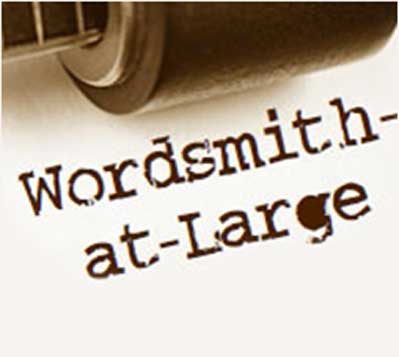Get your checkbook out. I saw a report earlier this month that indicated every living person in the U.S. would have to simultaneously pay $93,870 right now to wipe out the debt of the federal government. But that’s only if everyone acts today. Tomorrow, you pay more. And so do your children. And grandchildren. And great-grandchildren.
Something tells me not everyone is going to be sending in their fair share any time soon. All of us could, of course, just put it on a credit card. We Americans do seem to love maxing out our plastic and then just paying the minimum amount for the rest of our lives. I’ve seen information that indicates some 14 million of us have credit card debt of over $10,000 (and climbing). A whole industry has arisen that purports to help give relief to those with massive credit card debt.
I wonder if one of those debt-be-gone companies could get in touch with Congress and give our elected representatives a short primer on how their system works. Because according to the news this week, the $31.3 TRILLION dollar debt We the People currently have isn’t enough. Many, if not most, of those empowered to spend our tax dollars want to spend more of them.
It has long been the perceived duty of congresspersons and senators to “bring home the bacon.” Tune in to newscasts in every local municipality and you’re bound to run across representatives smiling broadly and touting the fact that they have secured hundreds of thousands, if not hundreds of millions, of federal dollars to fund some project in their respective jurisdictions. Come election time, these same officials love to brag about how much of our money they’ve spent.
Given our previously mentioned $31.3 TRILLION dollar debt, I’m not sure spending is really what we should be applauding right now. Here’s a radical thought: What if, instead of championing the SPENDING of taxpayer money, our elected officials vied for the honor of SAVING the most money? What if the country could actually turn a profit some day? Or at least break even?
Those of a certain age may well remember Senator William Proxmire from Wisconsin. Every month from 1975 to 1988, he handed out “Golden Fleece” awards. They were designed to highlight wasteful and nonsensical government spending.
Forbes magazine did a retrospective report on Proxmire’s efforts a couple of years ago. It mentioned that the first award went to the National Science Foundation . . . which spent $84,000 (over $420,000 today if adjusted for inflation) on a study on love. The Senator was reported to have said at the time, “I believe that 200 million other Americans want to leave some things in life a mystery, and right on top of the things we don’t want to know is why a man falls in love with a woman and vice versa.”
One of my favorites I read about was also from 1975. Another Golden Fleece award went “to the Federal Aviation Administration for spending $57,800 ($289,209 inflation adjusted) to study the measurements of 432 airline stewardesses, including the “distance from knee to knee while sitting” and measuring the ‘length of the buttocks.” Uh-huh.
The article went on to point out these other examples of award-winners:
– To the National Science Foundation for spending $103,000 to compare aggressiveness in sun fish that drink tequila versus gin.
– To the National Science Foundation for spending $46,100 ($170,935 inflation adjusted) to study the effect of scantily clad women on Chicago’s male drivers (1976).
– To the National Endowment for the Humanities for spending $2,500 ($11,105 inflation adjusted) in Arlington County, Virginia, to study why people are rude, ill-mannered, cheat and lie on the local tennis courts (1977).
-To the Department of Agriculture for spending $90,000 ($333,712 inflation adjusted) on a two-year study titled “Behavioral Determinants of Vegetarianism” (1979).
– To the National Oceanic and Atmospheric Administration for spending $6,000 ($22,297 inflation adjusted) to show that marijuana is harmful to scuba divers (1979).
-To the Department of Education’s Institute of Museum Services for giving $25,000 ($81,675 inflation adjusted) to a California zoo to be used in part to send two animal keepers to a three-day elephant workshop in Tulsa, Oklahoma (1980).
Now, surely, there must be one or two or perhaps even more examples of spending today that would merit Golden Fleece awards. I suggest that instead of debating high how the national debt ceiling should be raised, all Members of Congress should have a contest to see how much they could lower it. Which elected representative wants to go first?
©MMXXIII. William J. Lewis, III – Freelance Writer


Leave A Comment